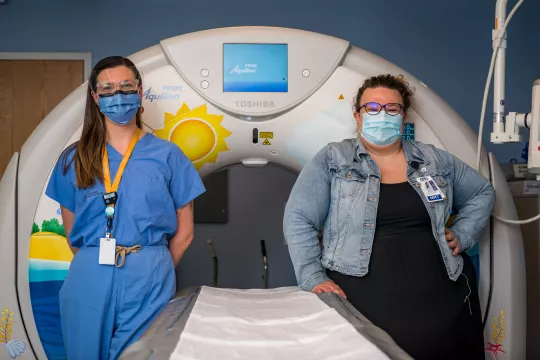A study published in the Journal of Medical Imaging and Radiation Sciences suggests that the use of virtual reality (VR) may be effective in eliciting empathy in medical radiation technologists (MRTs). Researchers concluded that VR may provide an effective tool for health care workers to experience the perspective of care recipients.
“As Medical Radiation Technologists, we are interested in the intersection of care and technology,” says lead author Megan Brydon, the picture archiving and communication system (PACS) application specialist, in diagnostic imaging at IWK Health. “We started this project in 2019, pre-pandemic, and now the idea of learning empathy in a virtual environment has taken on a new relevance.”
IWK Researchers looked at studies investigating VR experiences both in immersive VR environments where participants assumed the role of a care recipient, and non-immersive VR environments where the participants assumed the role of a care provider in a simulated care setting. The two types of studies helped researchers gain an understanding of what it is like to have a specific disease or need and to practice interacting with virtual care recipients.
“The wonderful part of research is that is lets us bridge the gap between an idea and reality,” says co-author Jessica Kimber, a CT/IR/general imaging technologist at IWK Health.. “Through this project, we were able collate a lot of data to determine that virtual reality can elicit empathetic behaviours in a variety of setting and with a range of patient experiences.”
Research has shown that empathy, the ability to put oneself in the shoes of another, gives health care workers the ability to provide appropriate supports and make fewer mistakes. It also helps increase patient satisfaction and enhance patient outcomes, resulting in better overall care. Empathy is essential to patient-centred care and crucial to the development of therapeutic relationships between carers and care recipients. Currently, there is a need for the development of effective tools and approaches that are standardizable, low-risk, easily repeatable, and could assist in eliciting empathetic behaviour.
